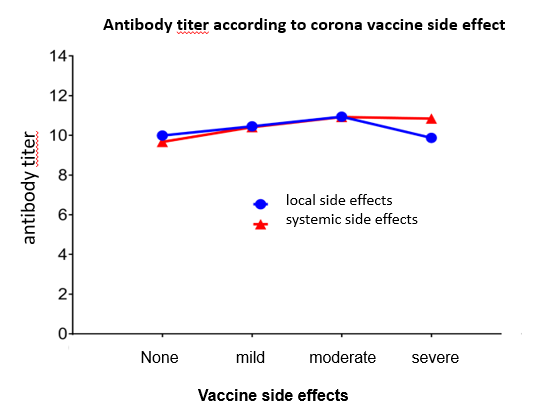COVID 19 vaccine side effects, irrelevant to antibody formation
- The Seoul National University Hospital research team announced the correlation between the side effects and efficacy of the COVID-19 vaccine
- Confirming the formation of antibodies against COVID-19 regardless of side effects after vaccination
- No need to worry about vaccine efficacy due to vaccine side effects
If there are no symptoms after being vaccinated against COVID-19, there are often concerns about whether the vaccine is not effective. However, as a result of this study, it was confirmed that the side effects and efficacy of the COVID-19 vaccine were not related.
A joint research team led by Professor Park Wan Beom of Seoul National University Hospital and Professor Song Kyung-Ho of Seoul National University Bundang Hospital investigated the relationship between vaccine side effects and antibody formation in a total of 135 people who received AstraZeneca vaccine (42 patients) and Pfizer vaccine (93 patients) between March and April 2021. The evaluation results were published on the 28th (of May).
Both AstraZeneca and Pfizer vaccines currently being used in Korea may cause local side effects (such as injection site pain, swelling, redness) and systemic side effects (fatigue, muscle pain, headache, fever, etc.).
As a result of the study, the frequency and severity of side effects after the second dose of Pfizer vaccine and the first dose of AstraZeneca vaccine were similar. However, fever was more common among AstraZeneca vaccinated people (36%) than Pfizer vaccinated subjects (19%).
Of the 42 patients who received the first dose of AstraZeneca vaccine, 39 (93%) had local adverse events, and 40 (95%) reported systemic adverse events. The most common side effect was local pain (93%), followed by fatigue (81%), myalgia (79%), and headache (62%). Of these, 11 (26%) reported moderate to severe local adverse events and 30 (71%) moderate to severe systemic adverse events. Of these, 36 (86%) took anti-inflammatory drugs.
The Pfizer vaccine had more side effects at the second dose than at the first dose. Of the 93 patients who received the second dose of Pfizer vaccine, 85 (91%) reported local adverse events, and 37 (40%) of them reported moderate or severe adverse events. 76 (82%) reported systemic adverse events, of which 56 (60%) were moderate to severe. 68 patients (73%) took anti-inflammatory drugs.

In addition, as a result of analyzing the relationship between the side effects of the AstraZeneca and Pfizer vaccines and the antibody titer, it was confirmed that there was no clear association between local or systemic side effects and antibody formation in both vaccines. In other words, it means that the effect of these vaccines cannot be estimated by the side effects of the vaccine.
Professor Park Wan Beom (Department of Infectious Diseases) said, “This study is the first study to evaluate the correlation between the side effects of the COVID-19 vaccine and immunity.
"There is no need to worry that the vaccine will not be effective just because there are no symptoms after getting the vaccine," he said. “If you experience side effects such as fever and muscle pain after the COVID-19 vaccine, do not worry and take antipyretics such as Tylenol.”
The results of this study were published in the latest issue of the Korean Journal of Internal Medicine, an international academic journal.

[Picture from left] Professor Park Wan Beom of Seoul National University Hospital, Department of Infectious Diseases, Professor Song Kyung-Ho of Seoul National University Bundang Hospital, Department of Infectious Diseases